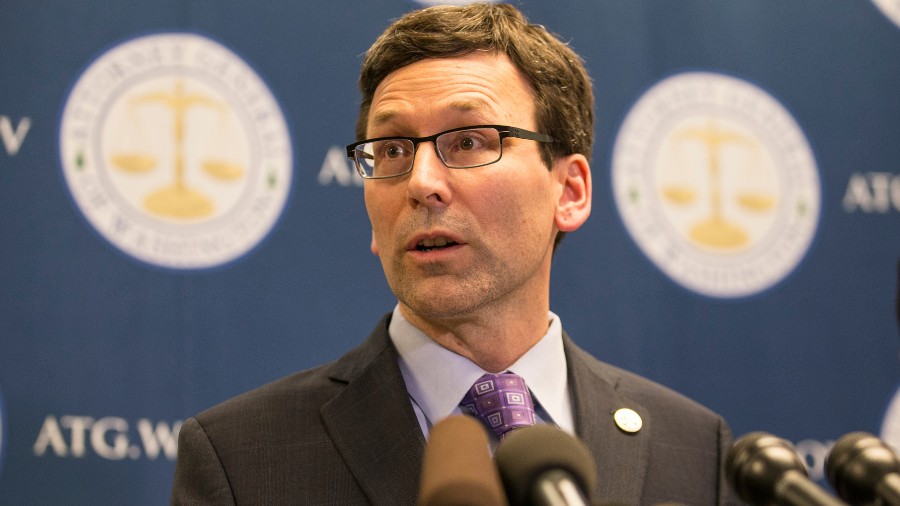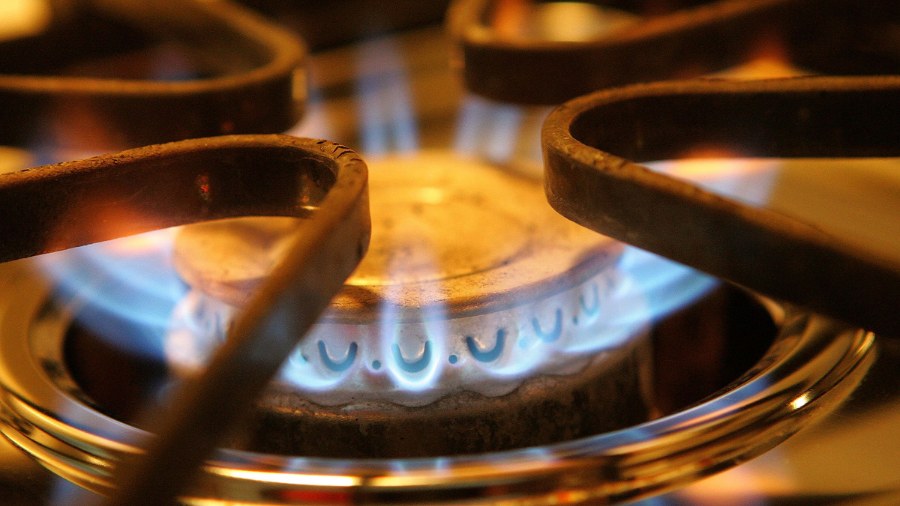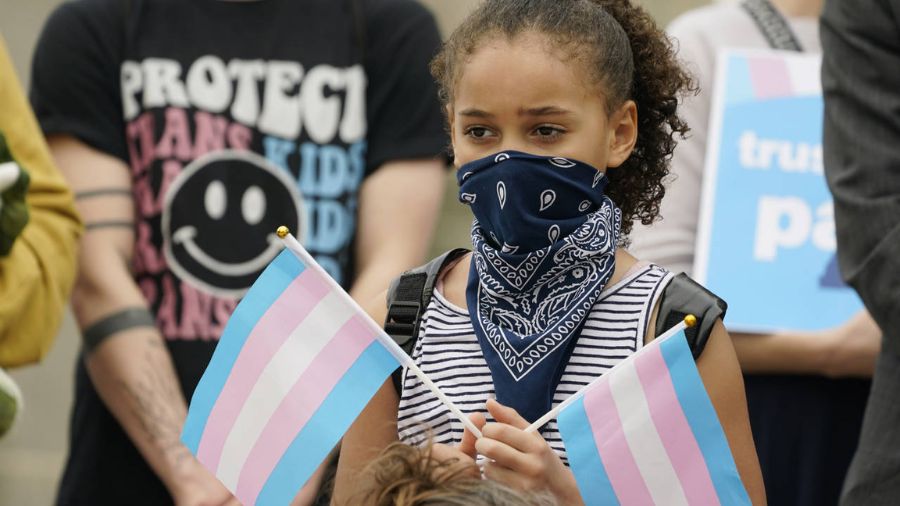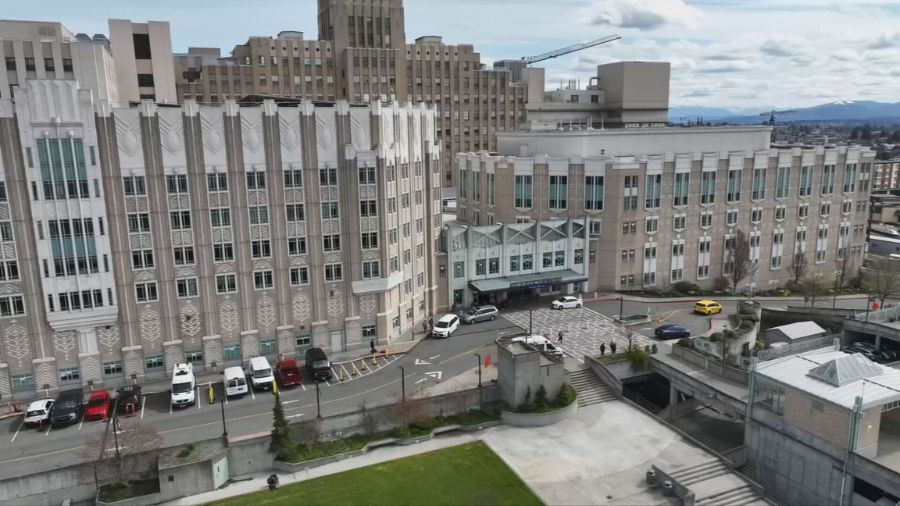Inslee accused of dishonesty over climate law’s impact on gas prices
Jan 5, 2024, 7:26 PM
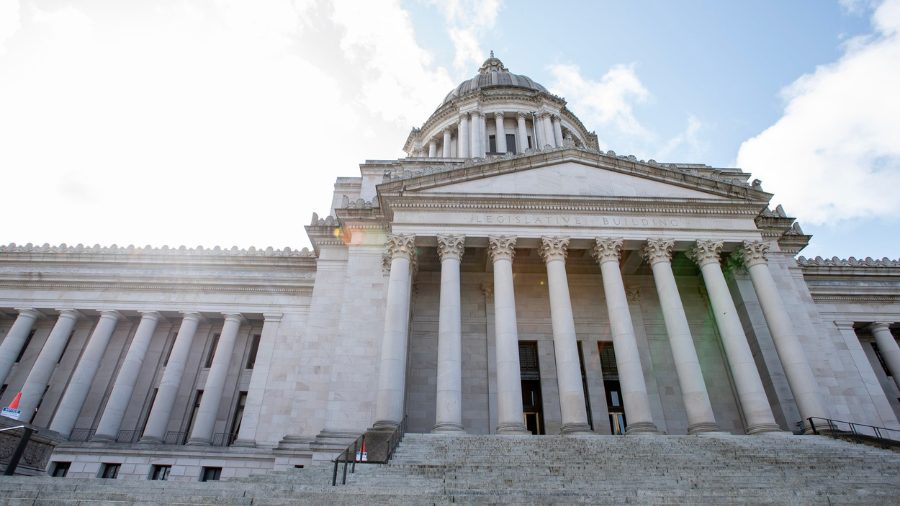
The State of Washington's Capitol Building in Olympia. (Photo courtesy of the Washington State Government)
(Photo courtesy of the Washington State Government)
Washington Democratic Gov. Jay Inslee is in the hot seat once again over the state’s controversial Climate Commitment Act (CCA), which is set to be a major focus of lawmakers — and voters — in the coming months.
“It’s like the weather report. You can’t always predict the weather perfectly,” he told reporters Thursday in Olympia ahead of the new legislative session that kicks off next week.
But newly-resurfaced video from a 2014 Senate Environment, Energy & Technology Committee meeting appeared to show the Inslee administration has long been aware of the possible impacts of a carbon tax on gas prices— despite the governor’s repeated claims to the contrary.
Inslee denied that he or his administration misled the people of Washington about the CCA. The law forces the state’s biggest polluters to rapidly decarbonize over the next several years and buy “credits” at designated auctions to offset their carbon emissions. Critics of the law argued oil companies and others have simply passed along the program’s new costs to consumers at the pump and elsewhere.
More on the state’s cap-and-trade: Former WSDOT economist files claim against state over gas price forecast
The governor has repeatedly said price gouging by the oil companies is to blame for higher costs, not the state’s climate laws.
“This is going to have a minimal impact, if any, pennies,” Inslee said in 2022 after the CCA passed but before it took effect. “We are talking about pennies.”
Looking more at the 2014 committee meeting
Evidence from Inslee’s office appears to contradict the “pennies” statement. In part of that 2014 committee meeting, the governor’s chief policy advisor, Matt Steuerwalt, presented findings from Inslee’s 2014 Carbon Emissions Reduction Taskforce (CERT) that found a CO2 price of $52 per metric ton (MT) – almost identical to the state’s current CO2 price – would increase gas prices. According to the report, by 2035, the extra cost could range from $0.38 to nearly $1.50 per gallon.
The Washington State Department of Ecology, which runs the carbon auctions, released its own estimate in a final regulatory analysis released in September 2022. It said that the CCA would increase transportation fuel prices by 1-3%, or approximately 5-15 cents per gallon (the report assumes a gallon of gas at $5). Inslee said Thursday the department had “looked at what happened in [California’s carbon market], and they made a prediction, and I don’t think it was far off, frankly.”
But others said the state’s estimate was not even close.
“Gov. Inslee has long known that putting a tax on CO2 emissions would increase gas prices,” Todd Myers, the environmental director with the conservative-leaning think tank Washington Policy Center (WPC), told KIRO Newsradio. “He just decided not to be honest about it.”
The calculation used by the Inslee administration for its projection in 2014 is the same one used by WPC in 2022 to predict a 46-cent increase in the price of a gallon of gas, according to Myers. He says the formula comes from the U.S. Energy Information Administration, a federal agency.
“Fundamentally, $52 a metric ton (of CO2), which is what the state now charges, is 44 cents per gallon of gas,” he explained. “And that is what the state has been receiving in taxes. So, we know that’s the case.”
But Inslee insisted Thursday there’s no way to predict the amount accurately.
“You can debate this until the cows come home,” Inslee said.
More on the state cap-and-trade auction: Officials spar over impact of climate act on gas prices as drivers pay up
Speaking about Steuerwalt, Inslee said, “I don’t know who you’re referring to as far as my former staffer, but they were wrong because (gas prices) actually came down a dollar since October.”
The actual drop is closer to 70 cents, according to federal data.
But even as Washington drivers see some relief at the pump, Myers said they are still paying more than they would be if the CCA was not in effect.
“Prices typically go up in the summer and down in the winter. That’s exactly what we have seen due to supply and demand issues,” he told KIRO Newsradio. “The issue is that gas prices in Washington are higher than they would be without the tax.”

Washington Gov. Jay Inslee gives his annual State of the State address on Jan. 11, 2022. (File photo: Ted S. Warren, AP)
How Washington got the CCA
Voters in Washington have twice before rejected previous attempts to tax carbon, in 2016 and again in 2018. Inslee, who has served as governor since 2013, has long been a proponent of various climate initiatives. He proposed a California-style cap-and-trade legislation in early 2015, but the plan failed to get traction.
The governor then decided to cap CO2 emissions using his executive authority, but the impact of that was greatly limited after the Washington State Supreme Court invalidated key portions of the rule as it applied to fuel distributors, natural gas companies and other industries.
But Inslee continued to push for a cap-and-trade system. The result of that was the CCA, which state lawmakers passed in 2021. It took effect last January and immediately sparked backlash from critics that the new “carbon tax” has been a driving force behind high gas prices in Washington. The Evergreen state’s prices at the pump were the highest in the nation last summer. They now sit in third place behind California and Hawaii, according to the latest AAA numbers.
More from Kate Stone: Wash. voters sound off on biggest priorities for new legislative session
Asked why Washington’s program rollout has not imitated California’s, Myers said the timelines for decarbonization in the CCA were not realistic.
“(Lawmakers) said that they modeled (the carbon market) after California, but they made it more strict,” Myers said. “And they actually bragged about that during the hearings.”
Legislators to examine the CCA
The CCA is likely to be put under a microscope when the legislature kicks off the session Monday. A group of Republican lawmakers have taken aim at the law, introducing a slate of bills designed to provide more transparency for customers on the costs of compliance. Additionally, a citizen-led initiative aims to repeal the law entirely. If enough signatures are verified, the initiative could be sent to lawmakers, but will almost certainly end up on the November ballot no matter what.
Allowing voters to decide puts the future of the CCA in a precarious position, and could significantly impact lawmakers’ plans to invest CCA revenue in electric buses, ferries and more clean-energy projects around the state. It’s a situation Inslee is hoping to avoid.
“The Climate Commitment Act has put over a billion dollars into transportation, including ferries, and we do not want to see that go away,” Inslee added.
Inslee reiterated that point on Seattle’s Morning News on KIRO Newsradio Friday.
“Look, we have a transportation problem,” Inslee said. “We have problems with our ferries. And if this bill is eliminated, it will blow a $1 billion hole in our ability to continue to build this state. I do not believe that’s the route we should go.”
Exclusive: Seattle’s Morning News interviews Gov. Jay Inslee ahead of the start of the legislative session
But, above all, he said he looks forward to a conversation with the people of Washington about the future. Not just on the climate law, but of the state itself.
“The most important thing you can say about this law is it limits pollution,” the governor said. “Frankly, that’s been lost in the dialogue about this.”
Pollution also was at the forefront of Inslee’s response to the questioning of CCA during his appearance on KIRO Newsradio Friday.
“We ought to now continue this effort to drive down pollution, the oil companies want to be able to pollute in infinite amounts, which are harming the health of our children,” Inslee said. “And we cannot allow infinite pollution, we’ve got to have a cap on the amount of pollution.”
You can read more of Kate Stone’s stories here. Follow Kate on X, formerly known as Twitter, or email her here.



